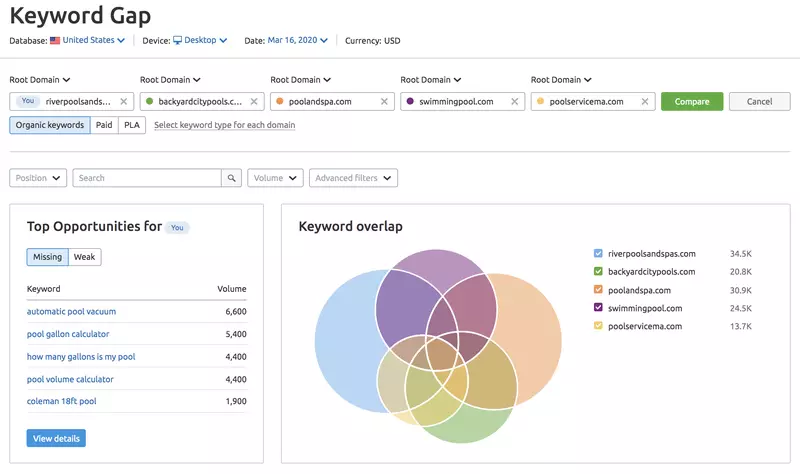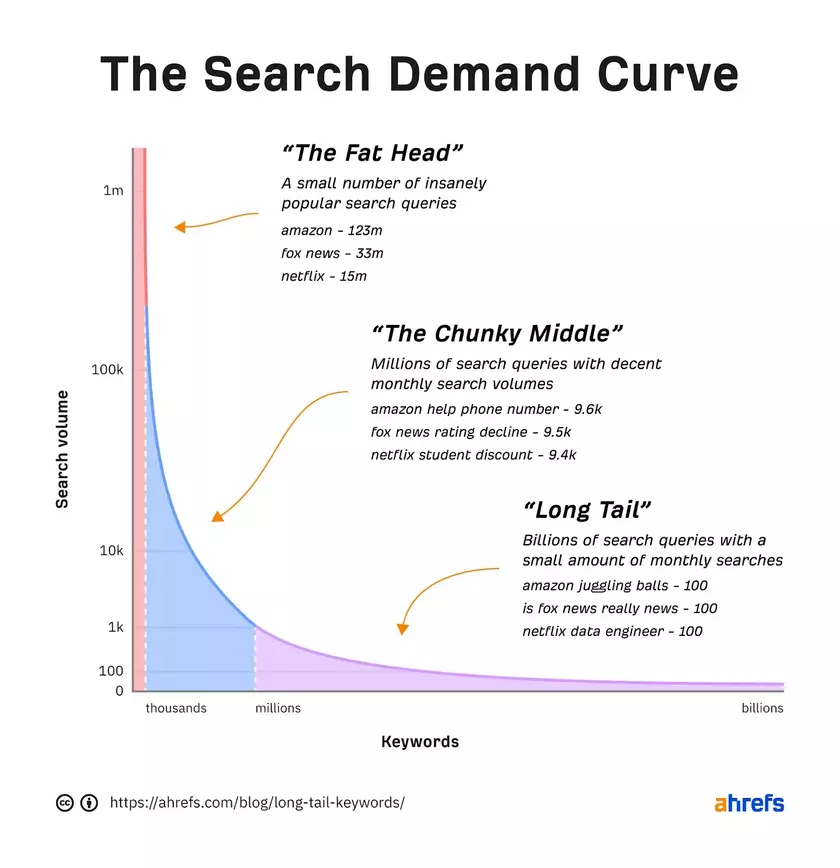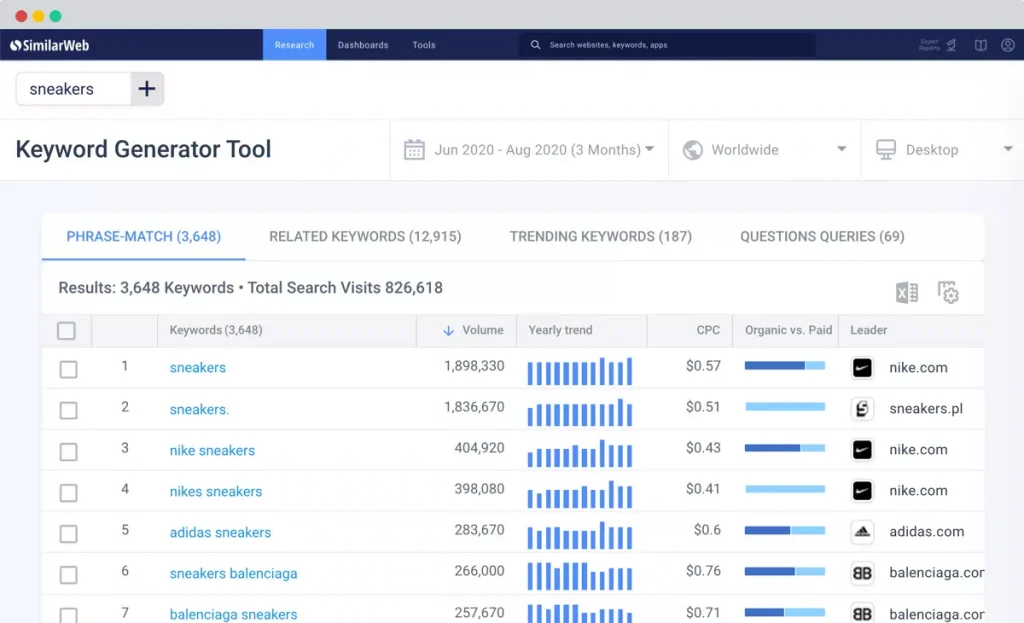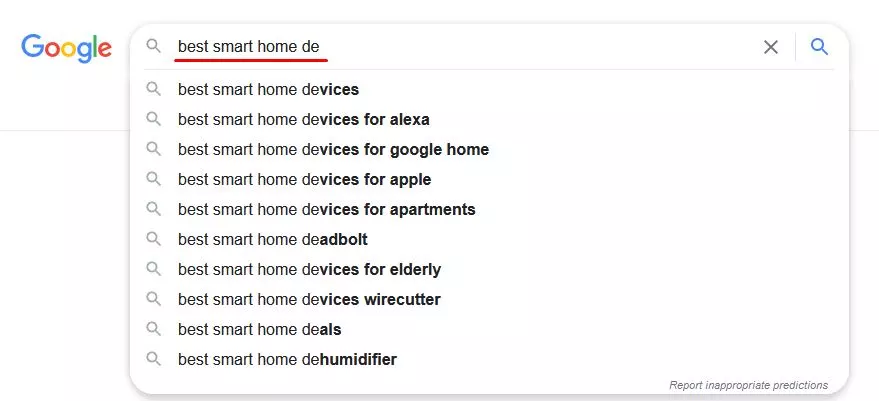10 Ways to Improve Your Keyword Research for SEO
If you want your website to rank high on search engines, it’s important to do keyword research in digital marketing. This involves finding the right keywords that people are searching for when they’re looking for websites like yours.
There are a few different ways to go about this. You can use keyword research services like Google AdWords Keyword Planner or Moz Keyword Explorer. These tools will show you how many people are searching for certain keywords, and how difficult it would be to rank for them.
You can also look at your competitors’ websites and see what keywords they’re targeting. If they’re ranking higher than you, then it’s likely that they’re doing a better job at keyword research than you are.
Finally, don’t forget to use common sense. Think about what words people would actually use when they’re looking for a website like yours.
1. Find your niche

There are a few things you can do to make sure you’re always ahead of the curve when it comes to keyword research. First, take the time to find your niche. What are you passionate about? What do you know more about than anyone else?
Once you’ve found your niche, build a blog or website around it and become an authority on the topic. This will not only help you attract more visitors, but it will also help you rank higher in search engine results pages (SERPs).
Second, focus on long-tail keywords. These are specific phrases that potential customers are more likely to use when they’re further along in the buying cycle. They’re usually more detailed and specific than shorter, general keywords. For example, instead of targeting the keyword “running shoes,” you might target “men’s size 10 running shoes.
2. Find your competitor

In order to improve your keyword research for SEO, it is important to first find your competitor. There are a few ways to do this:
1. Use a keyword research tool like Google AdWords Keyword Planner or SEMrush. Just enter in your competitor’s URL and you’ll be able to see which keywords they are targeting.
2. Look at your competitor’s website and see which keywords they are targeting on their pages. You can usually tell by the titles of the pages and the tags they are using.
3. Another way to find out which keywords your competitor is targeting is to simply ask them! If you have a good relationship with them, they may be willing to share this information with you.
Know your competitor not only know what keywords they rank but also what they don’t. That’s the keyword gaps, you can create content based on this type of keyword.
3. Find the keyword gaps

Find the gaps in your current keyword research. You can do this by looking at your competitors’ keywords and seeing what they are ranking for that you are not. You can also use tools like Google AdWords Keyword Planner and Google Trends to find new keywords.
Once you’ve found the gaps in your keyword research for content marketing, it’s time to start filling them in. Creating compelling content around the keywords you’re targeting. This could be blog posts, infographics, or even videos. Whatever content you create, make sure it’s high-quality and informative so that people will actually want to share it.
Some SEO tools provide keyword gaps function in their service, for example, SEMrush. They provide complete keyword research services.
4. Understand your audience

Before you can improve your keyword research for SEO, you need to understand your audience. Who are they? What do they care about? What are their pain points? Once you have a good understanding of your audience, you can start to think about the keywords that they might use to search for your content.
Think about the topics that your audience is interested in and the questions that they might have. Then, come up with a list of potential keywords that they might use to find answers to those questions. Don’t forget to also include some long-tail keywords (keywords that are longer and more specific) as well.
5. Use the right SEO tools

If you want to improve your keyword research techniques SEO, there are a few tools you should be using. First, start with Google AdWords Keyword Planner. This tool will help you find keywords related to your business and see how much traffic they get. You can also use Google Trends to see how keywords are trending over time.
Don’t forget about Bing Webmaster Tools. This tool provides data about the keywords that people are searching for on Bing, as well as how often your site is appearing in the search results. These are free tools with limited function and analysis.
Another great tool for keyword research services is SEMrush. This tool allows you to see what keywords your competitors are ranking for and how much traffic they’re getting. You can also use SEMrush to spy on your competitor’s backlinks and see where they’re getting them from.
Ubersuggest is also a great SEO tool because it can give you a lot of keyword ideas. You can enter a keyword and it will tell you what other keywords people are searching for. There s also a free version of the tool available on their website.
MOZ and Ahref are both also top SEO tools, but the free versions are limited. MOZ provides the DA score for all the websites that represent the ranking of a website from 1 to 100. Which is a standard of website quality used by almost all online systems.
If you are looking for some SEO tools which is cheaper with a lifetime deal, you can be looking for APPSumo. They provide a lot of SAAS (Software as a service) for SEO tools, which were some good choices for beginners.
6. Use Long Tail Keywords

As a business, you want to be ranking for keywords that will bring you the most traffic and conversions. But what if those keywords are too competitive? You may not be able to rank for them, no matter how much effort you put into your SEO. This is where long-tail keywords come in.
Long tail keywords are simply keyword phrases that are more specific and targeted than general, one-word keywords. They tend to have less search volume than broad keywords, but they can be easier to rank for because they’re more specific. And since they’re more specific, they can actually convert better than general keywords.
To find long tail keywords, start by brainstorming all the different ways someone could search for your product or service. Then, use a keyword research tool to see which of those phrases have low competition and high search volume.
7. Group similar keywords

One way to improve your keyword research for SEO is to group similar keywords together. This will help you to target your content more effectively and also make it easier to track your progress.
For example, if you are selling shoes, you might group together keywords such as “shoes”, “sandals”, “flats”, “boots” etc. This way you can see how well your website is ranking for all of these different keywords and take action accordingly.
Not only will grouping similar keywords together make your life easier, but it will also help you to create more targeted and effective content. So next time you are doing keyword research, take the time to group together similar keywords.
8. Keyword research in the forum or Quora

When it comes to keyword research techniques, the forum or Quora can be a goldmine. Here are 10 ways to improve your keyword research for SEO:
1. Use the search function: When you’re on a forum or Quora, use the search function to find relevant threads or questions. This will give you an idea of what people are talking about and what keywords are being used.
2. Look at the questions people are asking: People often ask questions on forums and Quora that they’re struggling to find answers to elsewhere. By looking at the questions people are asking, you can get ideas for new keywords to target.
3. Check out the related searches: When you do a search on a forum or Quora, take a look at the related searches that appear. These can give you some great ideas for new keywords to target.
4. Find out what people are saying in the comments. If you go to any forum or Quora page and look at the comments, you can find some great keyword ideas. The comments often reveal the things that people are struggling to find answers to, and this is great for keyword research.
Forums are a great way to find out what people are talking about and what keywords they are using. You can also use Quora to find out what people are searching for and to get ideas for new keywords.
9. Keywords related to Google Search Bar

Google Search Bar is the most popular search engine in the world. Use it wisely so you can get more related topics of your keyword.
Now try to key in any keyword in the Google search bar, then will come out with a list of the related topics below. Write it down any of it you think is suitable for your content, then create content for that.
The related list is the top volume searched topic and is relevant with information the user key in. This is the best and simplest way to find out the topic surrounding the keyword.
10: Keep track of your progress

As you engage in keyword research for your SEO purposes, it is important to keep track of your progress. This can help you determine which keywords are working well for you and which ones need more work. There are a few different ways you can go about tracking your progress.
One way is to use a keyword-tracking tool. This type of tool will allow you to see how your keywords are performing over time. You can see how many people are searching for each keyword, what percentage of those searches result in clicks, and what the average click-through rate is. This information can be very valuable in helping you fine-tune your keyword strategy.
Google Search Console is a free and powerful keyword-tracking system. It tracks your search-related activity, including keywords you’re bidding on, the average positions of ads for those keywords, and impressions and click-through rates for each keyword. If you haven’t already signed up for Search Console, you need to do so now.
Not only keyword-tracking but also come with a lot of metrics that help to improve your SEO effort.
Another way to track your progress is to simply keep a log of the keywords you use and how often they result in clicks and conversions.
Conclusion

After reading this article, you should have a much better understanding of how to conduct keyword research for your SEO campaigns. Although there is no one perfect way to do things, following these 10 tips will help you get the most out of your keyword research and improve your SEO efforts.
Hope you found something valuable here, if you like it, please help me share this article with other readers too. Much appreciated it. If you have any questions about keyword research, please leave me a comment and tell me what you think. Thank you for reading.




